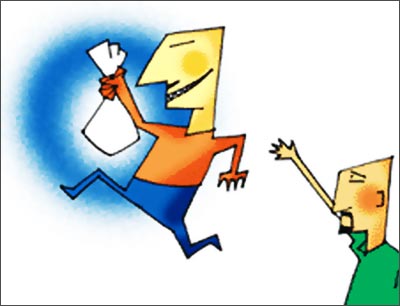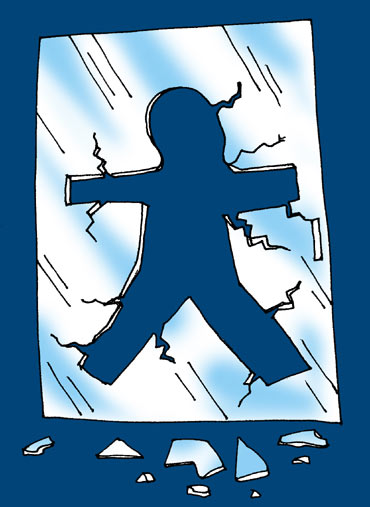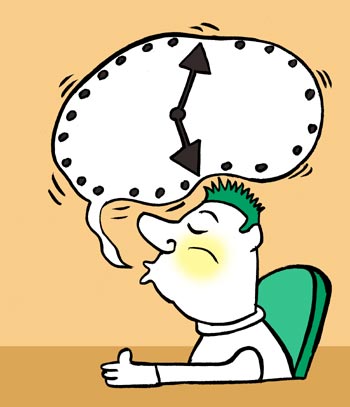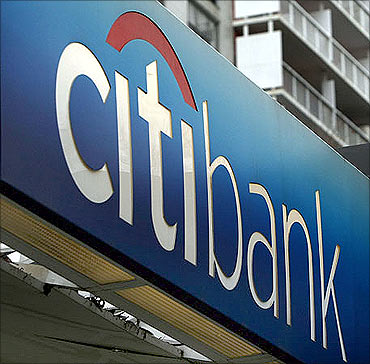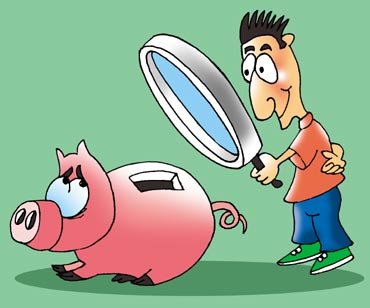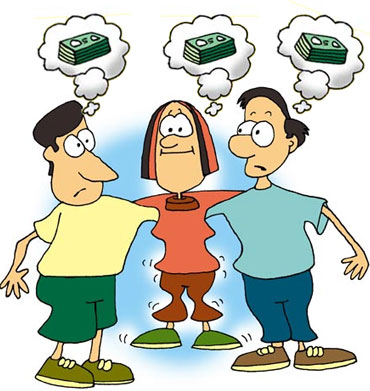 | « Back to article | Print this article |
Must read: What happens when a cheque bounces?
We use cheques to make personal, business and official payments all the time, but often do not realise the legal significance of that piece of signed paper. Read on to see what trouble a dishonoured cheque (i.e. bounced cheque) can cause you.
The logic
We all know what a cheque looks like and that once someone issues a cheque in your name, you simply go to the bank and cash it or deposit it in your account. But how is a cheque seen under the law? Well, the law classifies a cheque as a type of a "negotiable instrument" and dealings in cheques are largely regulated by Section 138 of the Negotiable Instruments Act.
So what happens if a cheque "bounces"?
Well, in the interests of a transparent and healthy economy, the law seeks to encourage people to make payments to each other for personal or business purposes by methods such as cheques, credit cards and debit cards rather than by cash. For people to trust and accept payment by such methods willingly (without actually having seen hard cash), the law discourages people fraudulently issuing cheques when in fact, they do not have the required balance/overdraft facilities with their bank to pay such cheques.
(This is not very different from a currency note, except it's the Reserve Bank Governor's who stands behind the piece of paper).
Must read: What happens when a cheque bounces?
The offence
Therefore it is an offence:
- If you sign a cheque that subsequently bounces and
- You refuse to make the required payment even after notice from the payee
- This offence is punishable by two years' imprisonment, a fine of double the amount of the cheque, or both.
Must read: What happens when a cheque bounces?
Section 138
Section 138 of the Negotiable Instruments Act makes it an offence if a cheque drawn by a person is returned from the bank unpaid (this is commonly known as "bouncing") due to:
- Insufficiency of funds in the drawer's account or
- The amount of the cheque exceeding the amount arranged to be paid from that account by an agreement between the drawer and the bank (for example under overdraft facilities)
- However, there are certain additional conditions that the payee (i.e. the person in whose favour the cheque is drawn) must satisfy before bringing a case under this law
Must read: What happens when a cheque bounces?
The payee must:
- Present the cheque to the bank within a period of six months from the date on which it is drawn, or within its validity period, whichever is shorter, and
- Within 30 days of the bank informing the payee that the cheque has bounced, the payee must write a letter to the drawer of the cheque demanding due payment
- Now, only if the drawer of the cheque has not made a payment within 15 days of the letter from the payee can a case be brought against the maker of the cheque.
Must read: What happens when a cheque bounces?
Example
To explain this clearly, let us take an example. Let us say Shailesh draws a cheque on his bank account with Citibank in favour of Mohit for Rs 10,000 which is the amount of rent he owes Mohit. Shailesh has only Rs 2,000 in his Citibank account and no overdraft facilities. Mohit deposits the cheque in his SBI account within three months. The cheque bounces (because of insufficient funds in Shailesh's bank account) and SBI informs Mohit of this on August 1. Now, Mohit may file a case against Shailesh only if:
- Mohit writes a notice/letter to Shailesh within 30 days of August 1, that is, by August 31, demanding repayment of the Rs 10,000
- Shailesh does not make the payment of Rs 10,000 to Mohit within 15 days of receipt of Mohit's notice/letter
Must read: What happens when a cheque bounces?
Cheques issued by a company
So what happens if you are employed or involved in the running of by a company whose cheque has bounced? If a cheque signed on behalf of a company bounces, anyone who was in charge of, and responsible to the company for the conduct of the business of the company will be deemed guilty unless he can prove that:
- The offence was committed without his knowledge, or
- He had exercised all due diligence to prevent the commission of the offence
However, if it is proved that the offence was committed with the consent or connivance of, or, is due to any the negligence of any:
- Director
- Manager
- Secretary
- Or other officer of the company
Such person will be deemed guilty.
Must read: What happens when a cheque bounces?
Since this section places what is known as vicarious liability upon the officers of a company, it is interpreted strictly by the courts. Therefore, you would not be liable for a bounced cheque issued by a company just by virtue of the fact that you hold a particular post (for example, director) in it:
You would also have to be in charge of and responsible for the conduct of the business of the company at the relevant time. In order to proceed against the directors of a company for a bounced cheque, it is not enough to say that they were in charge of the company by virtue of their position.
There must in fact be specific allegations against the Directors, showing how and in what manner they were responsible for the conduct of the business of the company. However, if you are the Managing Director or Joint Managing Director, a Director or an Officer of a company who signed the cheques on behalf of the company, then it is not necessary to make specific averments in the complaint and by virtue of your position/action, you will be liable to be proceeded against.
Must read: What happens when a cheque bounces?
Filing the case
Cases for bounced cheques must be filed where the bank of the payer (that is the person who signed the cheque) is located, as the cheque is deemed to be presented at the payer's bank.
Settling the case
A case for a bounced cheque may be settled (this is known as compromise or compounding). A payer can settle a case by repaying the amount owed to the payee under the cheque in question.The earlier a payer settles the case, the fewer costs are imposed upon him. The costs are as follows:
- If the accused makes an application for compounding of the offences at the first or second hearing of the case, compounding may be allowed by the court without imposing any costs on the accused
- If an application for compounding is made before the Magistrate at a subsequent stage, compounding can be allowed subject to the condition that the accused will be required to pay 10 per cent of the cheque amount to be deposited with the Legal Services Authority (or another body determined by the court) as a condition for compounding
- Similarly, if the application for compounding is made before the Sessions Court or a High Court in revision or appeal, such compounding may be allowed on the condition that the accused pays 15 per cent of the cheque amount by way of costs
- Finally, if the application for compounding is made before the Supreme Court, the figure would increase to 20 per cent of the cheque amount
Remember, a Section 138 case is no guarantee that you will always receive your money. If the person who has written the cheque does not have enough to pay you, but has served the criminal sentence, you will have to file a civil suit to recover the losses. In many cases, the fear of going to jail is enough to make offenders pay.
